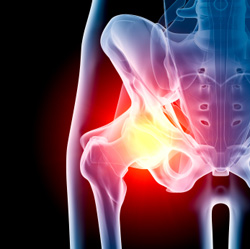
Metal hip implants and other medical devices go untested and largely unregulated. As a result, thousands of patients suffer severe and debilitating injuries, even death, as a direct consequence of this lack of oversight.
After an exhaustive study of the safety and efficacy of artificial hip implants, The New York Times has published an article that examines the risks of metal hips and other medical devices.
The article, authored by Jeanne Lenzer, attributes loose oversight of medical devices to the increase in device recalls over the years. Medical interventions are the third leading cause of death in the U.S., and devices, she says, plays an increasing role in that statistic.
Thousands of Americans have filed lawsuits against manufacturers of hip implants for failing to warn doctors and patients about their dangers. According to The New York Times, the medical device industry is ripe with loopholes that allow hip implants and other medical devices to be rushed to market, bypassing critical testing that would protect consumers.
“Many people assume that the Food and Drug Administration requires rigorous testing of medical devices before they are approved, the same as the lengthy approval process it requires for new drugs. In fact, most high-risk devices on the market, including implants, have undergone no clinical testing at all.” — New York Times, 1/13/18
An abbreviated approval process known as 510(k) rests on the notion that if one device has been cleared by the FDA, then similar devices need little or no testing on actual patients. If a new medical device is “substantially equivalent” to an already-marketed device, then clinical testing is not required, even for the highest risk devices.
A 2011 editorial published by The New England Journal of Medicine noted that the DePuy ASR hip implant is a Class III medical device—the highest risk classification—and approval through the 510(k) process is especially inappropriate for devices that pose the highest potential risk to patients.
According to The New York Times, about 32 million Americans—or about one in 10—have at least one medical device implanted. Many patients and their physicians are not fully aware of the health risks these products pose.
Read More:
-
Can Your Hip Replacement Kill You? [Jeanne Lenzer, The New York Times]
-
FDA’s 510(k) program unfixable, New England Journal of Medicine agrees [MedCity News]
-
Defective Medical Devices Spark Questions and Criticism of FDA 510(k) Approval Process [Brett Emison, Kansas City Legal Examiner]


